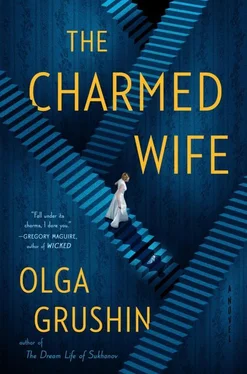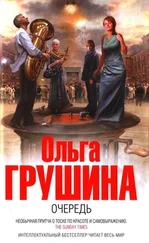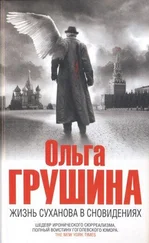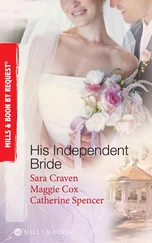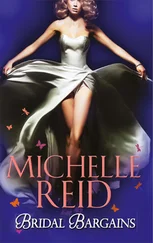“I never liked it,” Gloria announces.
“You did, too!”
“No. I never did. The women in these stories are all wimps and ciphers. No feelings, no thoughts of their own. No balls . All they want is to get rescued and to get married. Artifacts of masculine oppression, the whole bunch.”
“Not true,” Melissa says. “Most fairy tales are subversive. Feminist, even. No, don’t snort, listen. These are stories women told to other women, old wives’ tales, spinners’ yarns, right? And who are their heroes? Women again. Snow White, Rapunzel, Little Red Riding Hood. Girls who run away from home, choose husbands, escape wolves. They have names, they have characters, they have adventures. But the men? Just nameless blanks, the lot of them, and some are downright evil. Did you know, there is a version of Sleeping Beauty in which a married king comes across her, rapes her in her sleep, then goes back to his wife. She gives birth, still in her sleep, and it’s actually her baby who wakes her up trying to suckle her. And I’m sure the storytellers knew exactly what they were saying. And the Cinderella prince, what a dolt! First he takes one ugly stepsister to the palace, then the other, and he can’t tell they aren’t his true love until someone else points out their feet are bleeding? Not exactly the romance of the century! But Cinderella, she knew what she was doing marrying the guy. It never says she was in love. She just wanted to be a queen, and it sure beats washing dishes… Hold on, let me tiptoe upstairs, I’ll get the book from Myrtle’s nightstand.”
She brings it down, and the three of us sit on the couch and look through it together, Melissa in the middle, turning pages, and Gloria, unconvinced by Melissa’s rhetoric, making dismissive noises as each new wide-eyed princess floats into view. Inwardly, I find myself inclining to Gloria’s opinion. The illustrations, though, are beautiful and unexpected, with the familiar tales of Charles Perrault and the Brothers Grimm set by the artist in Victorian manors filled with glowing gas lamps and grandfather clocks, in Jazz Age mansions full of bobbed flappers, in oppressive suburban mid-century homes, all beige-tinted bourgeois comforts. My memories of the book are vague at best—as the youngest, I did not always share in my sisters’ pastimes—and yet, as the next picture comes into view, I seem to recall seeing it before, and am studying it with mild interest when Gloria takes the book out of Melissa’s hands.
“French Baroque is appalling.” Only she is capable of infusing so few words with so much disdain. “Methinks we’ve had enough of regressing.” She shuts the book firmly. “Shall we now do something more age-appropriate and open the third bottle? By the way, remember how, when you were four or five, you went about talking with some ridiculous made-up accent, sniffing some precious bouquet you unearthed somewhere, drinking milk with your pinkie stuck out, and pretending you were an adopted child of some foreign grandee and we your evil stepsisters?”
“I did not! ”
“You most certainly did.”
“You did, you know,” Melissa chimes in, smiling.
“No, did I, really?” I had honestly forgotten all about it. “I must have been a horrible sister,” I say, half laughing, half repentant. “But it was hard growing up as a follow-up act to you two.”
“Nonsense, you were always the prettiest,” Melissa says.
“Maybe so, but it didn’t count for much with our mother, did it? I mean, Gloria, you were tough, you had brains and ambitions, and you, you were so outgoing, and you had that laugh, everyone liked you. But what did I have, apart from my silly blond curls? I wasn’t good at anything, Mom said so all the time. Not good at anything other than mopping dirty bathroom floors, that’s what she told me, over and over, until I really couldn’t stand working in that hotel. You two were always her favorites. Even the name she gave me, I always hated it, the most boring name of the lot… Well, I guess I just needed to get away from home so badly, I had to marry the first suitable man who asked. And Roland was certainly suitable. Of course, we all ran as far and as fast as we could, though in very different directions, no?”
“What a load of horseshit.” Gloria pours more wine into her glass, then, after a moment’s hesitation, mine. “Mother never played favorites. Hers was tough love with all of us, you don’t know half the stuff she said to me and Mel. Every time I brought home a less-than-perfect grade, she told me I’d die drunk in a gutter. ‘Just like your father.’ That’s what she said to me. Every single time. There were days I was sure I would always hate her. Well, what did I know then, I was fifteen. So, fine, she wasn’t easy to live with, but she worked herself sick for us and she raised us the best she knew how… And there is absolutely nothing wrong with your name. It was our great-grandmother’s name. It’s beautiful. And it suits you perfectly.”
Melissa is frowning at me.
“But you loved him, right?” she asks. “When you got married? Didn’t you?”
And just like that—whether because of all the wine I have drunk, or the relief of speaking to my sisters after the decade and a half of near-estrangement, or the coziness of Melissa’s home, her girls’ happy drawings on the walls, her good, stolid husband asleep upstairs, or Gloria’s matter-of-fact, plainspoken vulgarity—something in me breaks loose, something vast and cold slides away, and from below, released, the emotions swell, and the truths, their dark, warm, salty flow much like the sea tide, much like weeping, and I see what I have been afraid to see, what I have hidden from myself for so long behind the story of an innocent lovesick wife put upon by a heartless man who tricked her into a marriage without a spark.
I did not love my husband when I married him.
I never loved him—and deep inside, I must have always known it.
Oh, of course, I was infatuated once—more, I was smitten, for he was handsome, he was brilliant, he was worldly, he was rich, he was ambitious, he was generous, he was absolutely everything a sad young girl with clouds and dreams for feelings could have wished for. And yet I did not love him, not in the deep, true sense, not in the way Melissa loves Tom, not in the way I love my children, not in the way our stern, no-nonsense, widowed mother loved the three of us. But as a child, I had often found her love heavy, demanding, disapproving, damaging even, so I had come to long for a different kind of love to find refuge in, to escape to—an easy love, a pretty love, a fairy-tale love. There is no easy love, of course, but at twenty-one, at twenty-two, I could not have possibly known it, and when something much like it came dazzling into my life, all my future selves, all my unrealized chances, all my untold stories seemed but a paltry price to pay for it—and a price I paid gladly. No one had robbed me of anything—I myself made the choice to give away my freedom, to give away my fire. And it never even occurred to me that I could say no, because how can you say no when fate singles you out, raises you out of the common muck as someone special, someone deserving of an ideal life, a life in which everything is easy, everything soft, everything gentle, and no one ever barks a harsh word, and no one ever slaps you, and no hard-drinking fathers die of heart attacks at the age of thirty-eight, and no hardworking mothers, old and gray before their time, cry nightly at the kitchen table before growing grim and estranged. But in this ideal life, everyone glides with the oily predictability of porcelain figurines in a decorative music box, one-two-three, one-two-three, and your days are like a never-ending teatime, everything polite and elegant and gilded just like some picture of a smiling princess in a powdered cake of a palace in a fairy-tale book. And maybe this life has no depth, and maybe it has no spark, that may be true, everything may well be somewhat flat, everything slightly dulled, even kisses may well taste of dust and ice, because proper fairy tales do not need any depth and you yourself tossed passion away when you married a seemingly flawless man whom you never loved, whom you were not in love with, whom, in truth, you never even wanted to take to your bed, for there had always been something in him, something too slick, too cold, too perfect, something that you disliked, something that held you off. And yet, at the time, it all made such sense, and you were like a young hopeful fly carried away by a luminous drop of sweet nectar, intoxicated, blinded by the luster, not knowing that the fresh-smelling sap would soon calcify into hard amber and you would be trapped in all that suffocating golden light, you would be trapped, trapped, trapped—
Читать дальше
